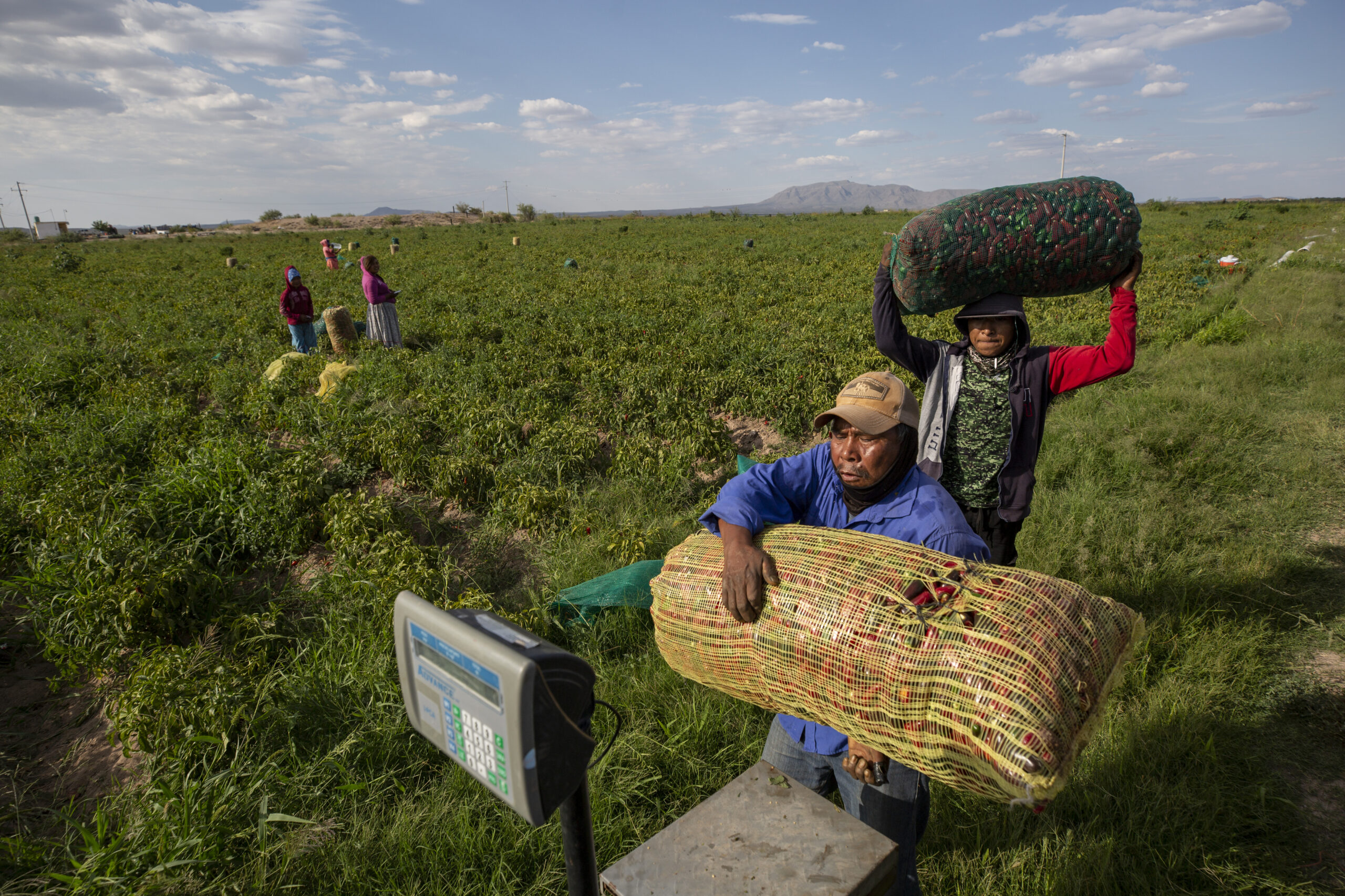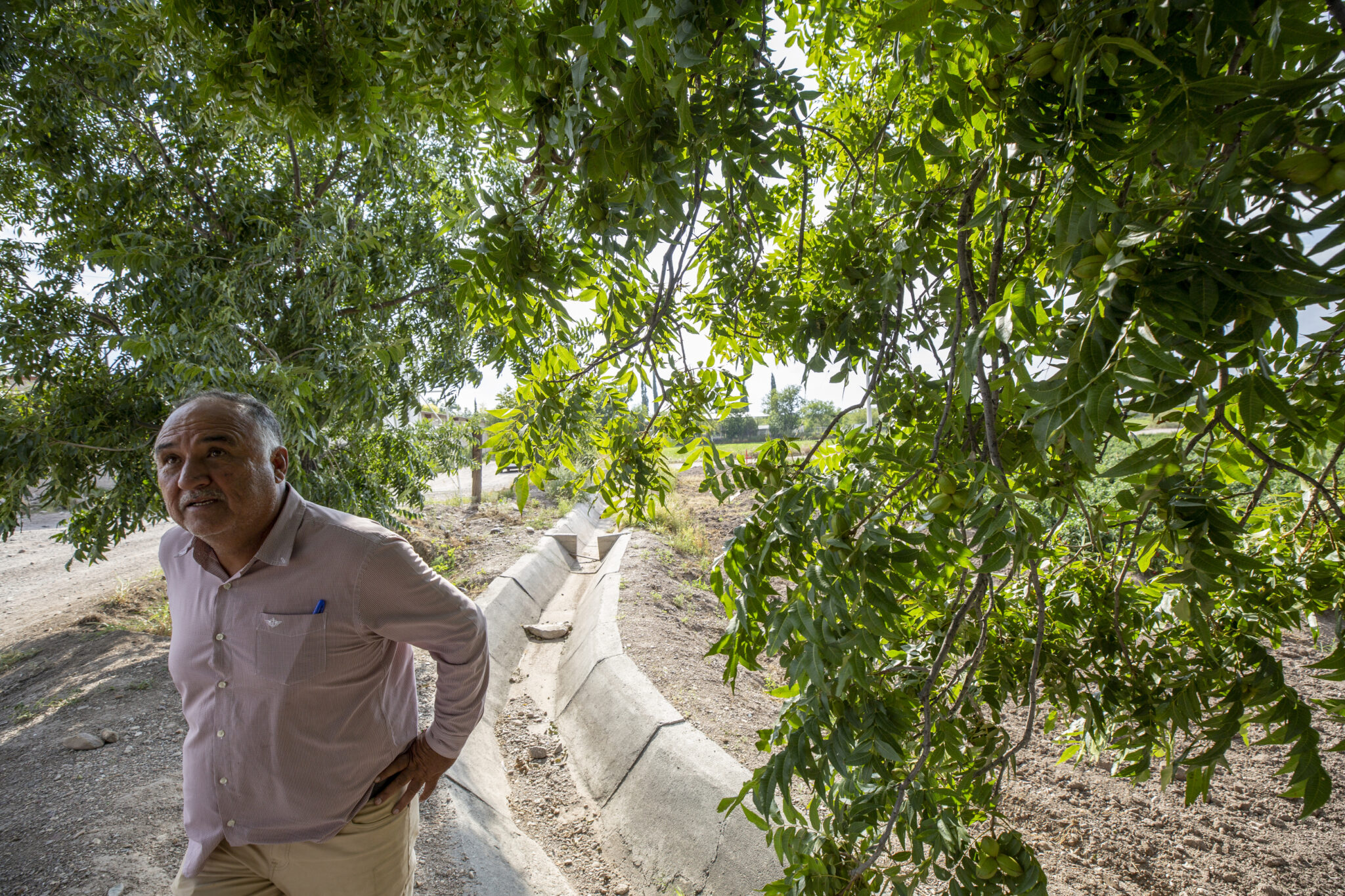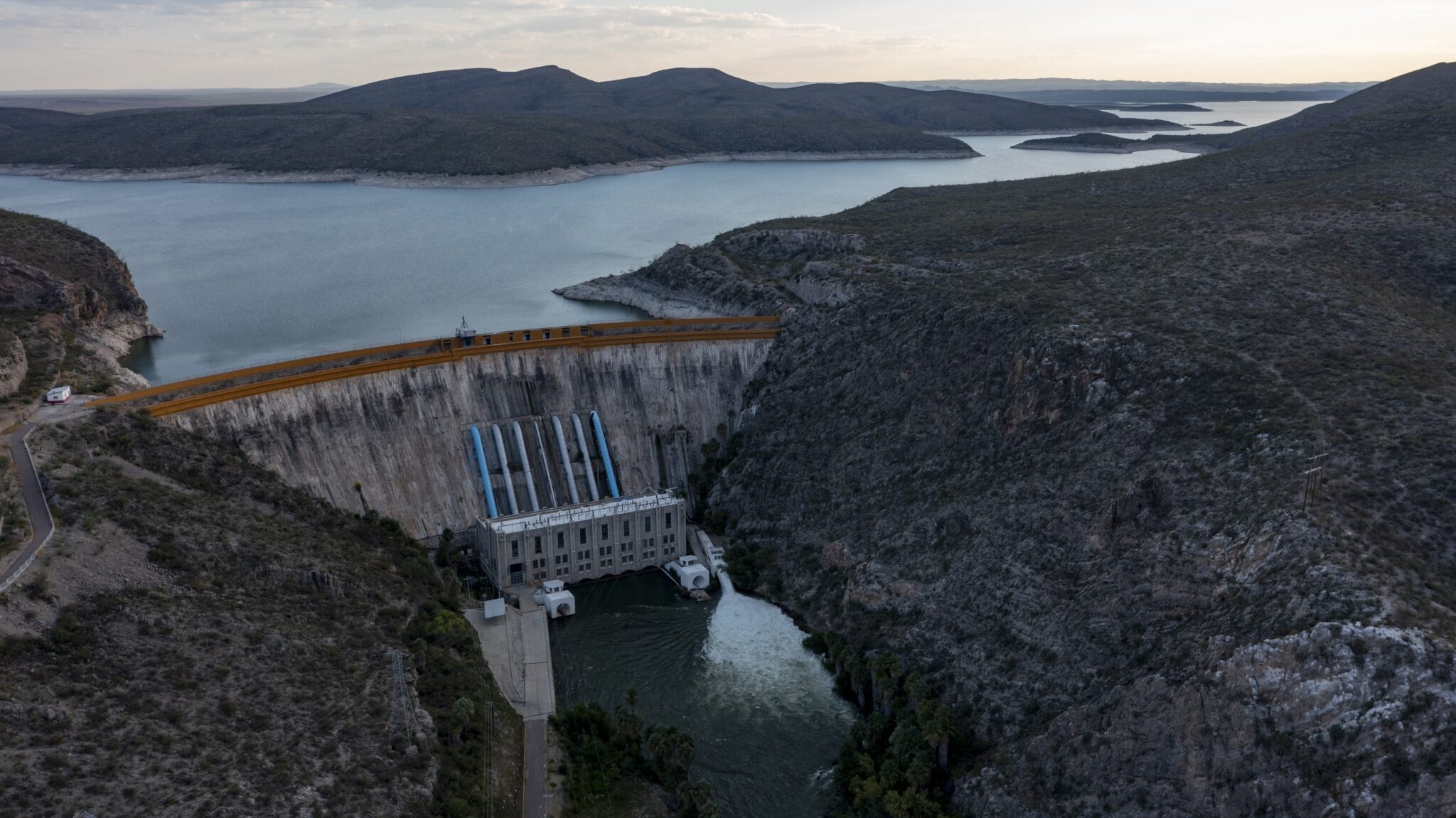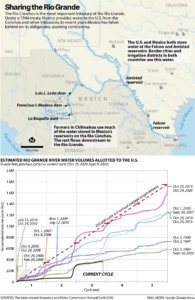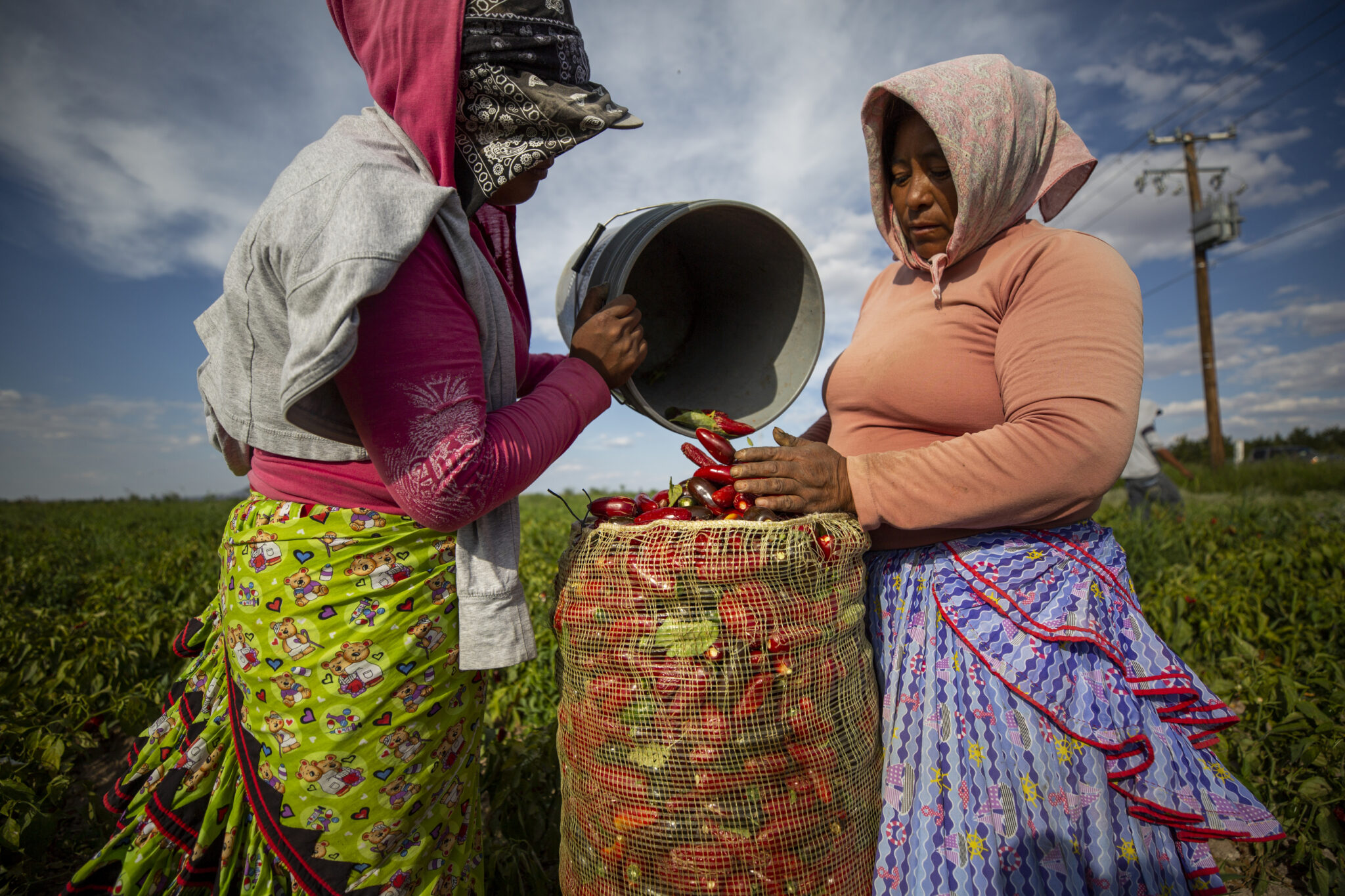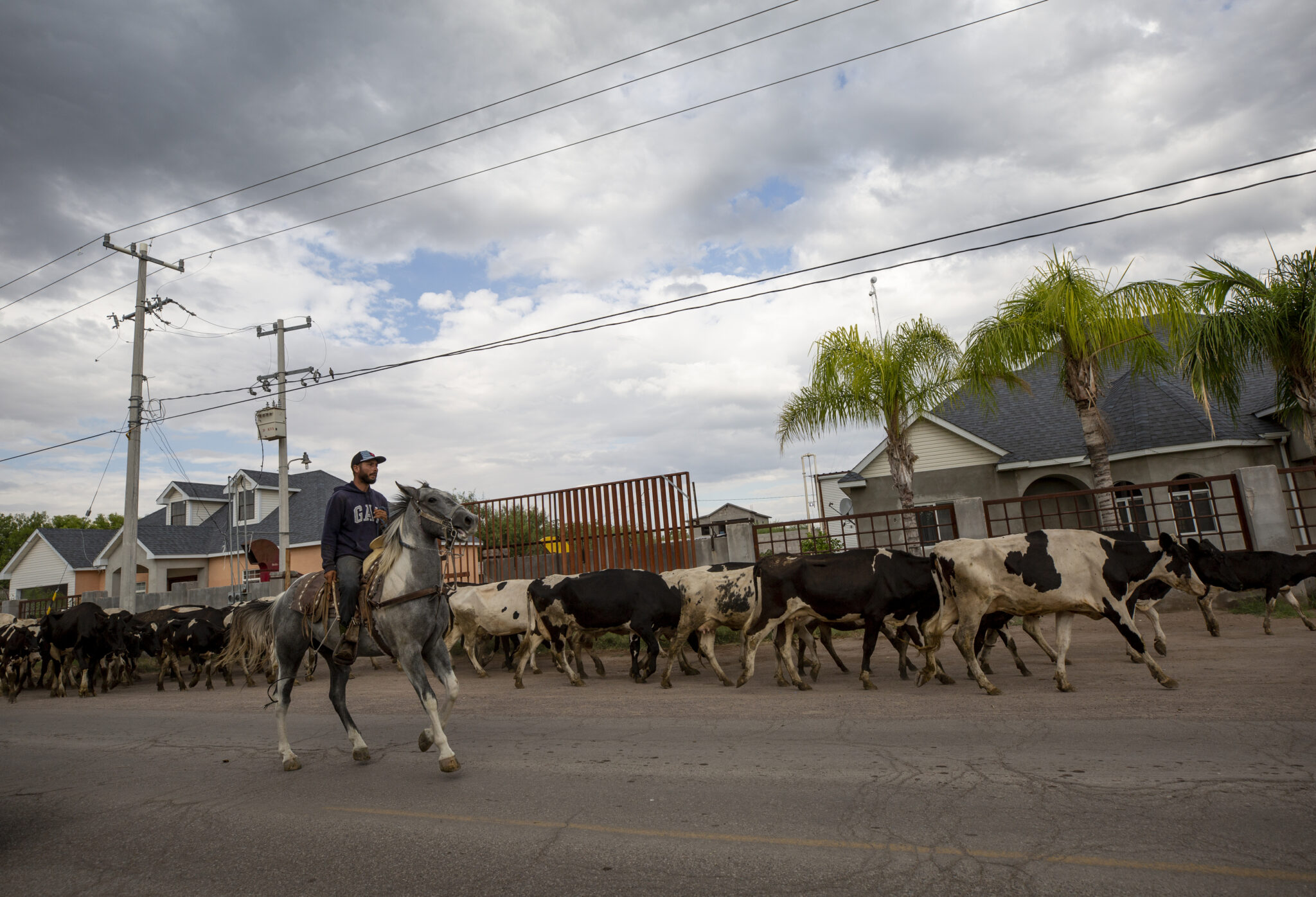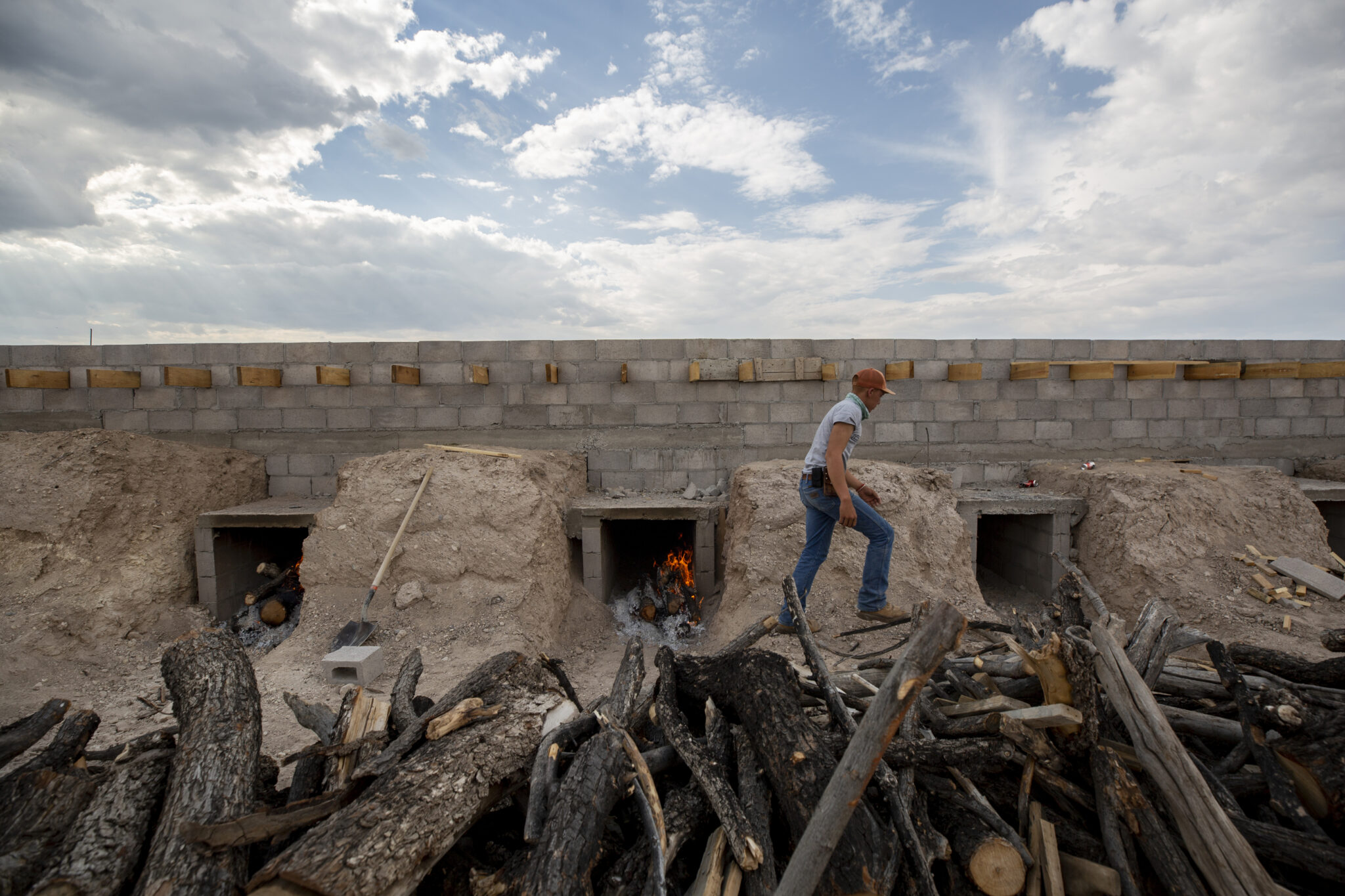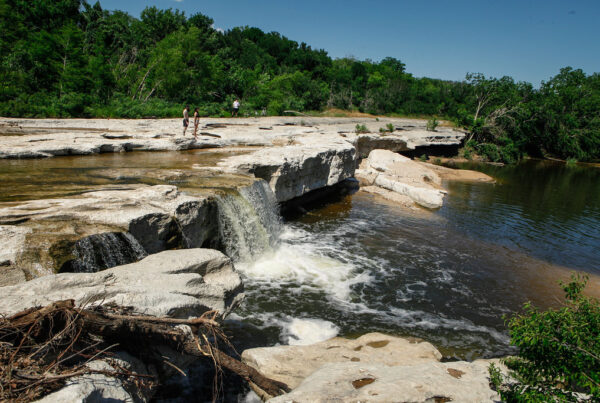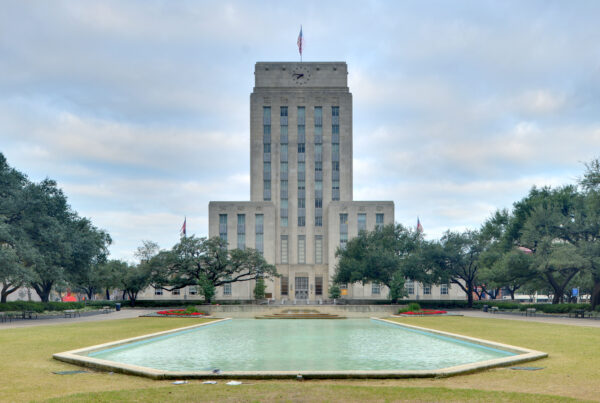From Inside Climate News:
This story, reported with a grant from The Water Desk at the University of Colorado Boulder, is published in partnership with the El Paso Times.
DELICIAS, Mexico—By late August, the usual monsoon rains had scarcely materialized in this region of Chihuahua, one of the driest states in Mexico. The reservoir at La Boquilla dam was dipping lower and lower, deepening farmers’ anxiety about how they would plant their pecan, alfalfa and chile crops next spring.
Local officials in this northern Mexican town were stewing for an additional reason. Would administrators in Mexico City opt to share that precious water with the United States to fulfill a bilateral treaty? And if they did, would local farmers rise up again in protest?
With the clock ticking toward an inexorable treaty deadline, the U.S. and Mexico are under pressure to find a solution without setting off a local rebellion. And climate change and drought, not to mention provocations from Texas politicians, are complicating the challenge.
Many in Chihuahua state are pleading with the Mexican federal government to find another way to comply with the treaty while saving the reservoir water for local farmers.
The government “should take a close look at the situation, at why farmers are opposed to them taking the water,” said Jaime Ramírez Carrasco, municipal president of the town of San Francisco de Conchos, an hour’s drive south of Delicias. “We can’t let life in our region be extinguished just to give life to another region.”


